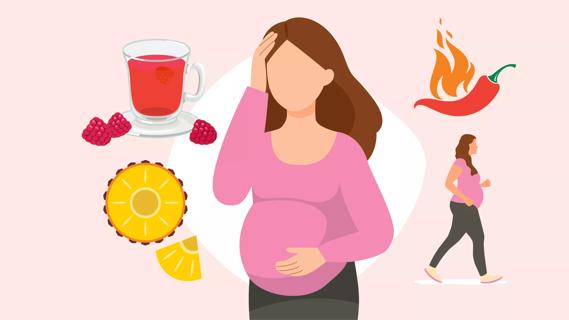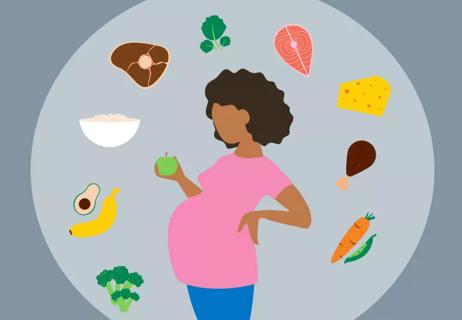What you can do to lower your chances of a premature delivery

Pregnant people often are full of concerns (and rightfully so!), especially if they are first-time moms-to-be. One of the biggest worries outside of becoming a first-time parent is if their baby will arrive too early, resulting in premature birth.
Cleveland Clinic is a non-profit academic medical center. Advertising on our site helps support our mission. We do not endorse non-Cleveland Clinic products or services. Policy
In the United States, 1 of about every 10 babies is born premature (or, pre-term), meaning the baby is born before the 37th week of pregnancy.
“Most pre-term births are not preventable. However, certain risk factors increase the odds of not carrying a baby to full-term,” says Ob/Gyn Salena Zanotti, MD. Babies who are born too early are at a higher risk of serious disability or even death. To do your best as an expectant mother to prevent premature birth, consider the following:
“More studies are starting to reveal that people who are either underweight or overweight before they become pregnant are at a higher risk for pre-term delivery,” Dr. Zanotti says. “As we all know, obesity is a real problem in this country. So making sure that you have a normal weight is one thing you can really try to work on.”
It’s important to maintain a healthy weight for you and your baby during pregnancy. During this time, it’s normal to gain weight, but if you’re concerned that you are not gaining enough or gaining too much, consult with your healthcare provider.
As a first-mom time, you might wonder how your diet affects pregnancy. How much caffeine should you consume? Can you maintain your vegetarian lifestyle? All valid questions to ensure a safe and healthy pregnancy and delivery.
Dr. Zanotti shares several other risk factors that can result in premature births. Some can be controlled, but some cannot.
“Those who are carrying multiple babies are usually at a higher risk for pre-term delivery, so they are monitored very closely as a precaution,” Dr. Zanotti says.
“If you become pregnant at a very young age, as well as those who become pregnant after age 35, you’re also at a higher risk of pre-term delivery,” she says.
Lifestyle habits can play a role too, which is why it’s important to avoid smoking, alcohol and the use of recreational drugs.
Another risk factor for pre-term delivery exists for those who have had previous procedures performed on their cervix because of pre-cancerous concerns.
“If you’ve had a procedure to your cervix because of abnormal pap smears and precancerous changes, you are at a higher risk for pre-term labor and pre-term delivery,” Dr. Zanotti says.
“Those who have had previous pre-term births are at a higher risk in future pregnancies,” Dr. Zanotti says. However, some studies have shown that the use of progesterone injections may significantly reduce that risk and are recommended by many providers.
“There is much research going on to find ways to reduce the risk of pre-term birth. For now, lifestyle modifications to ensure someone is the healthiest they can be and routine prenatal care are the best things you can do,” she adds.
It’s also important to attend your regular pregnancy checkup appointments and consult with your Ob/Gyn with any concerns. Becoming pregnant for the first time can be an overwhelmingly happy and stressful time and it’s completely normal to feel this way.
Learn more about our editorial process.

Everyone’s unique, and there’s no exact checklist of symptoms, but you may feel contractions, cramps and pelvic pressure

Lanugo — the soft, fine hair that develops in utero — is harmless and will shed within a few weeks

Staying up-to-date on vaccines encourages a healthy pregnancy, but not all vaccines are recommended when you’re pregnant

Science says only one way actually works, but there are a few others that are still safe to try

When a growing fetus puts pressure on your abdomen, your belly button may pop out or even flatten

Talk with them about their new sibling early and often

Dental care is not only safe during pregnancy, but it’s also highly recommended

A healthy pregnancy diet includes good amounts of folic acid, DHA, calcium and more

Your metabolism may torch 1,300 to 2,000 calories daily with no activity

A gentle touch in all the right places may help drain your sinuses